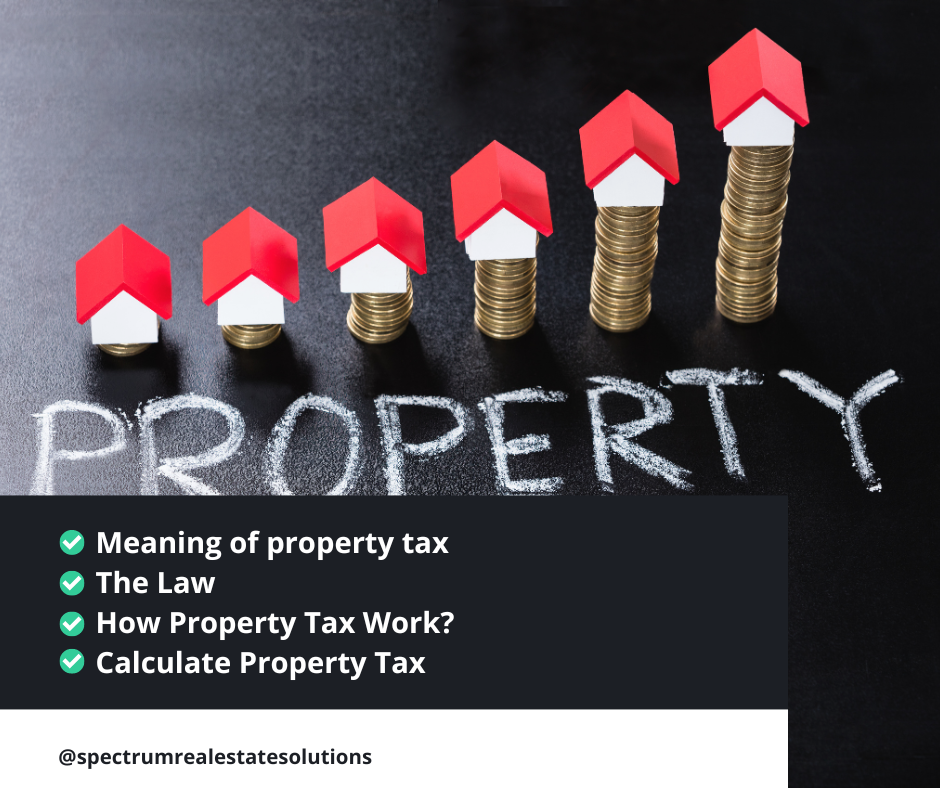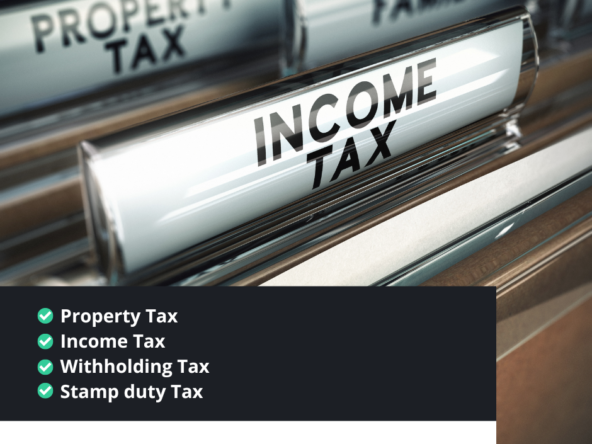REAL PROPERTY TAXES IN UGANDA
By the end of this article, you should be able to know.
- Meaning of property tax
- The Law
- How Does Property Tax Work? Property Valuation
- How To Calculate Property Tax
Property Tax: What It Is, What It Does and How It’s Calculated
Property tax is an assessed fee based on the value of a property. And it is just one of many expenses that must be accounted for if you own property.
All rental properties pay property taxes, so it’s critical that new rental owners understand how property taxes work.
Let’s take a closer look at what property taxes in Uganda.
Definitions
Property rates, as collected by tax authorities, are taxes on the rental or business income of property in Uganda that can be applied to commercial, institutional, and rented residential properties.
Property is defined as immovable property and includes a building (industrial or non-industrial) or structure of any kind but does not include a vacant site.
Owner means a proprietor whose interest in a particular piece of land is registered under the laws of Uganda or any person who has a right to or concession over that particular land for an indefinite period.
Ratable Value is the net annual rental value of a property ascertained in accordance with the Local Government (Rating) Act 2005. It is the gross value less a conservancy allowance of 22%.
Rate per annum is the amount levied annually on a property, between 0 and 12% of the ratable value with a minimum charge of two thousand shillings.
Gross-value is the rent at which the property might reasonably be expected to let, from year to year, if the tenant undertook to pay conservancy fees, water rates and all other usual tenants’ rates and taxes and the landlord undertook to bear the cost of repairs and any other expenses necessary to maintain the premises in a state to command that rent.
The law
Property Tax (Rates) Property rates in Uganda are levied by local government councils, the enactment of Local Government Act in 2005, which came into effect on 1st November 2005. This Act provides the mechanism for carrying out the valuation, assessment, billing and collection of rates; and applies to Kampala City Council, municipal councils, town councils and districts.
It is charged with the fulfilment of the periodic statutory requirement of the Local Government Act 2005. The money collected caters for the infrastructural development, among other services.
The Act gives local governments leeway to charge from 1-12 per cent on commercial properties in the city.
The appropriate percentage is set by elected leaders depending on the income which commercial properties make. But the percentages charged by different cities vary.
For instance, while KCCA charges six per cent property tax, other surrounding municipalities such as Entebbe, Kira municipality, Mukono and , charge a higher percentage.
Who Should Pay Property Tax In Uganda?
Section 6(1) of the Local Government (Rating) Act provides “that the person liable for payment of the rate shall be the owner of the property in respect of which the assessment is made.” Therefore, anyone who owns a building which is used for commercial purposes (including residential rented properties)
How Does Property Tax Work? Property Valuation
Property taxes are calculated using the property’s value and the city’s tax rate. Many factors can affect a property’s value, including the physical home and the land it sits on.
A tax assessor estimates the market value of all the owned property within their jurisdiction. Assessors prepare property tax assessments for property owners to determine how much they will pay in property taxes.
In addition to tax assessors, local officials oversee and set the property tax rate for their municipalities. When local officials determine a local property tax rate, they consider the property type along with the county and town property tax where the property is located.
Because a home’s property value is closely monitored, changes to a property can cause a property tax increase or decrease.
Every local government is mandated to appoint persons qualified and registered as valuation surveyors under the Surveyors’ Registration Act. The valuers carry out valuation to ascertain the ratable value of the properties in an area. Local governments may adopt the mass valuation method of valuation which is valuation based on the general features of properties in any part of an area or the general features of categories in the area. The valuers come up with a draft valuation list which contains particulars of any property.
A notice is published in the Uganda Gazette and a newspaper informing the public that a copy of the draft valuation list is complete and open for inspection at the office of the local government and the right of objection of any aggrieved person.
How To Calculate Property Tax
If you’re interested in estimating your property taxes, follow this formula:
According to the Local Government Act, local governments can charge a percentage not exceeding 12% of the taxable value of the property and a minimum of 2,000 shilling. The taxable value is 74% of the revenue generated by a property.





